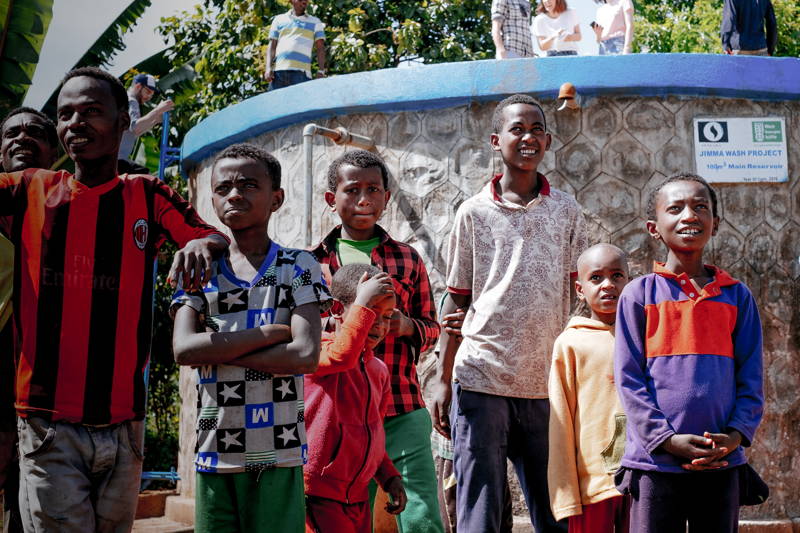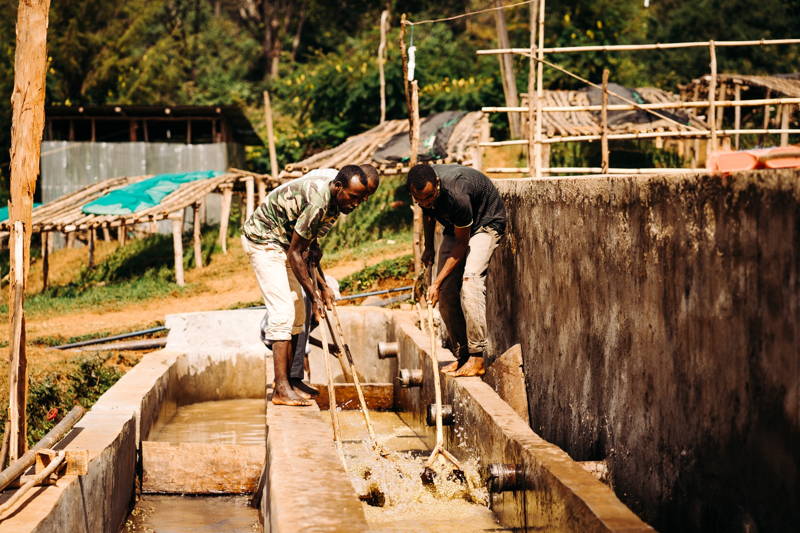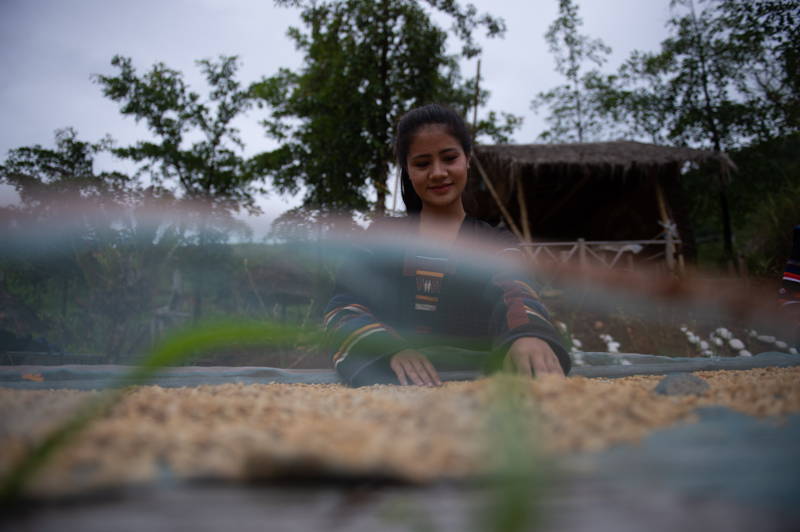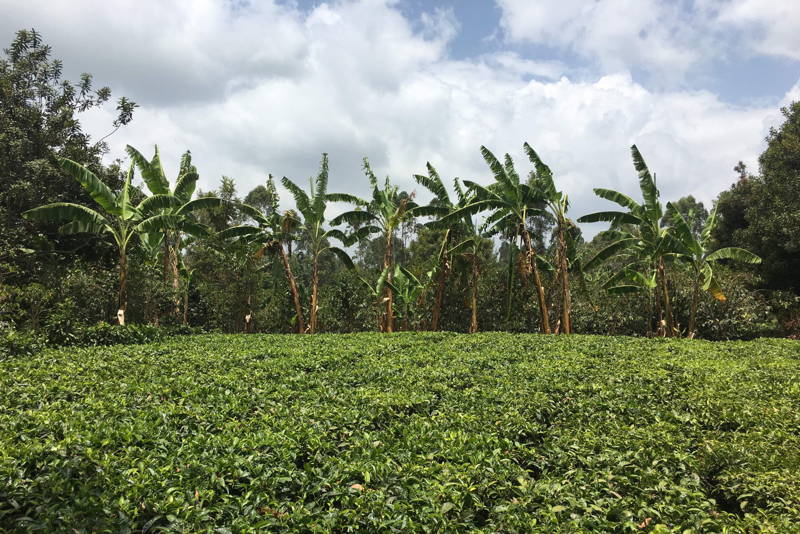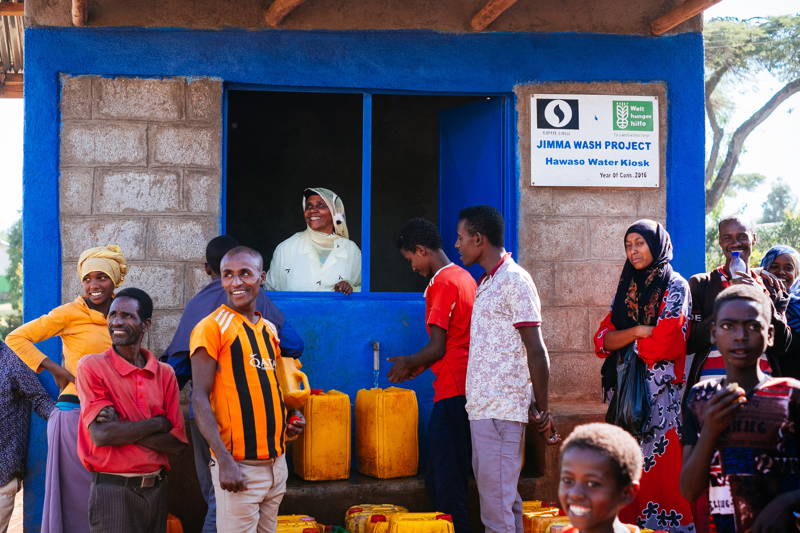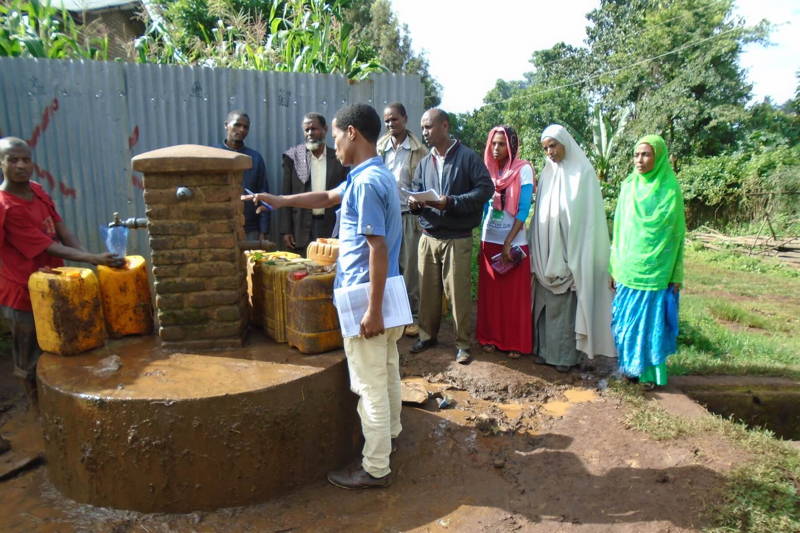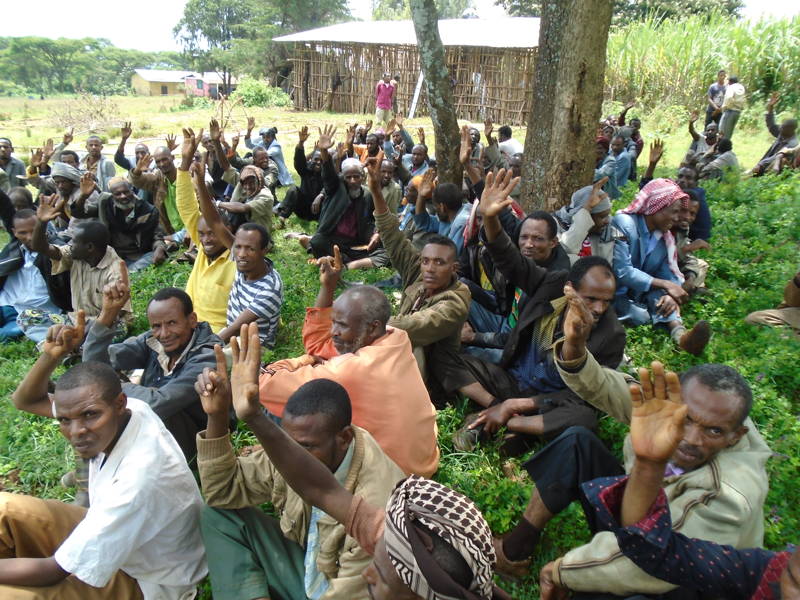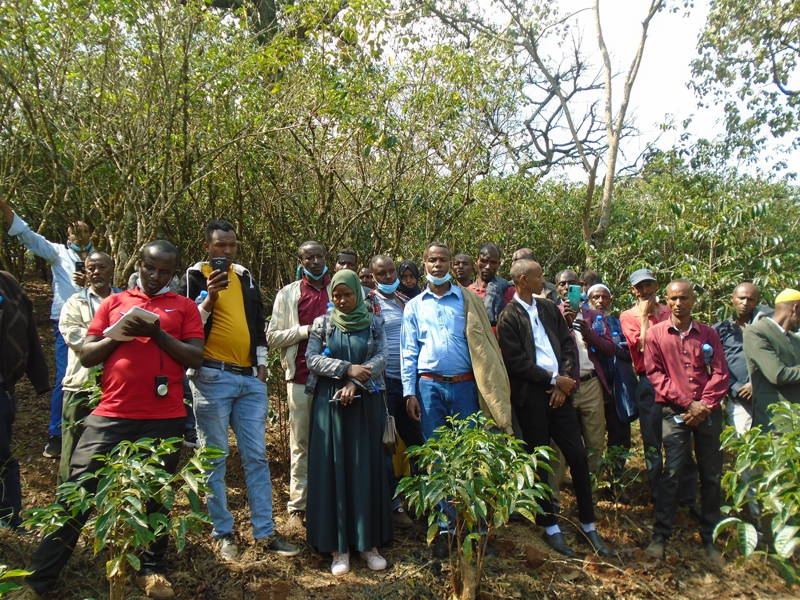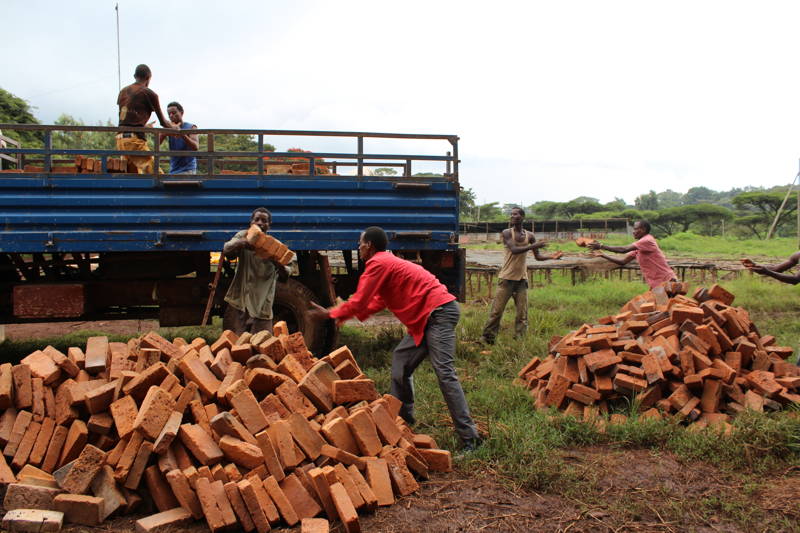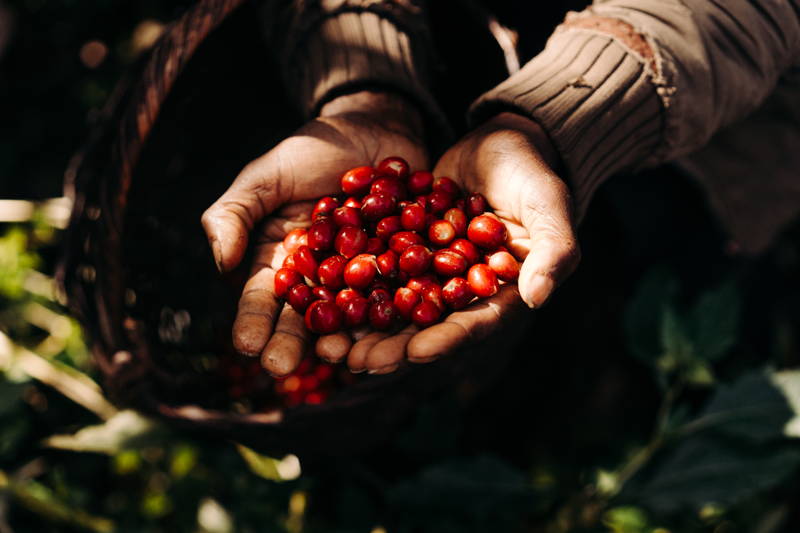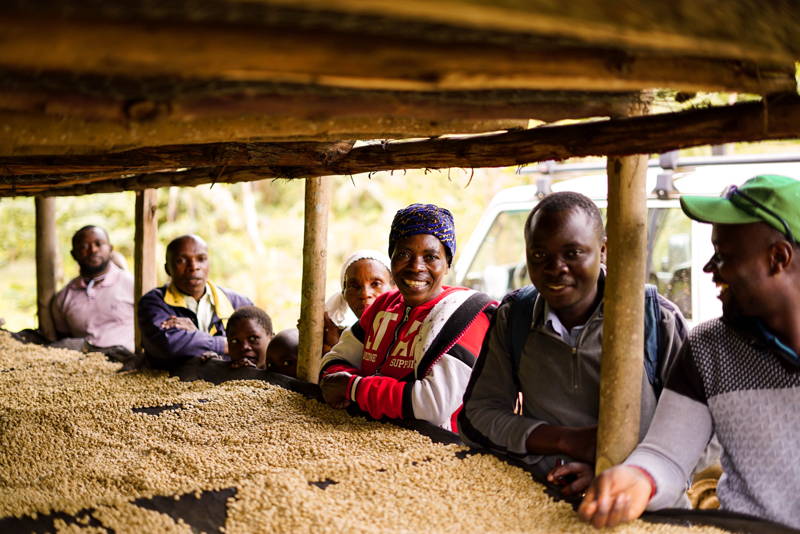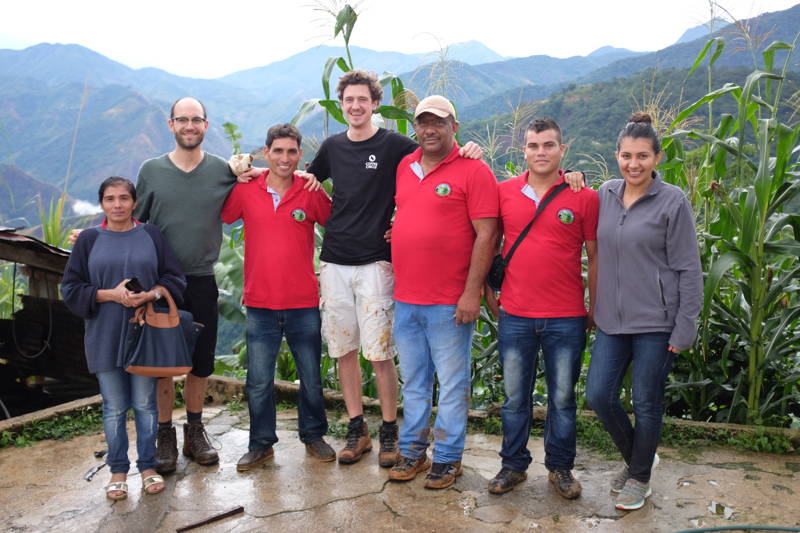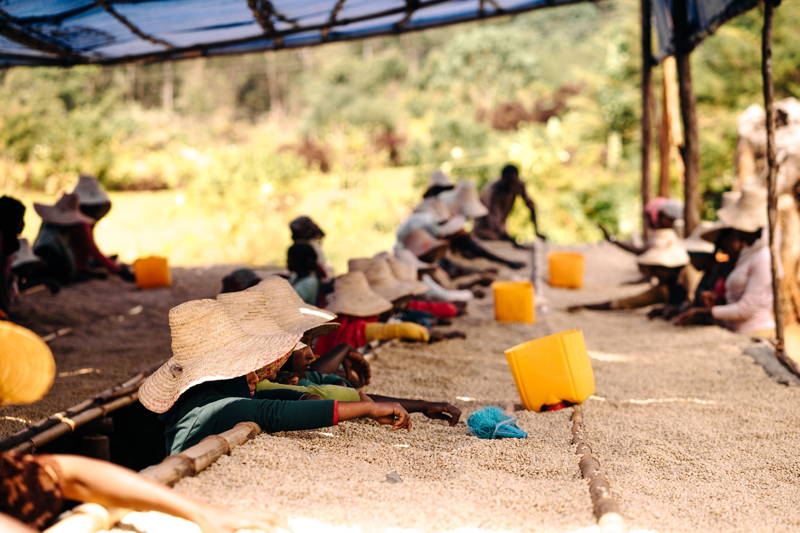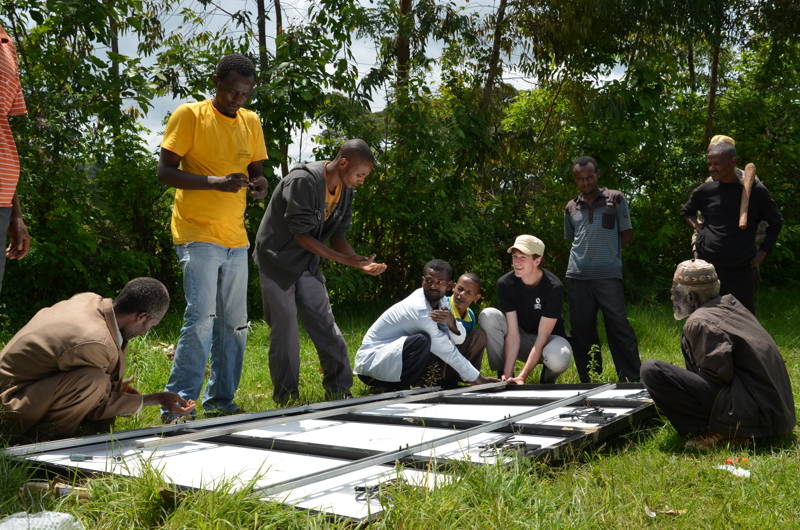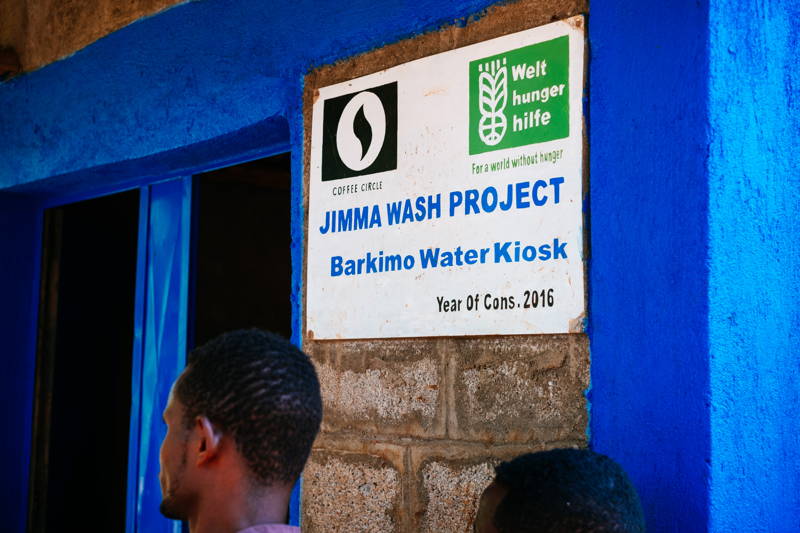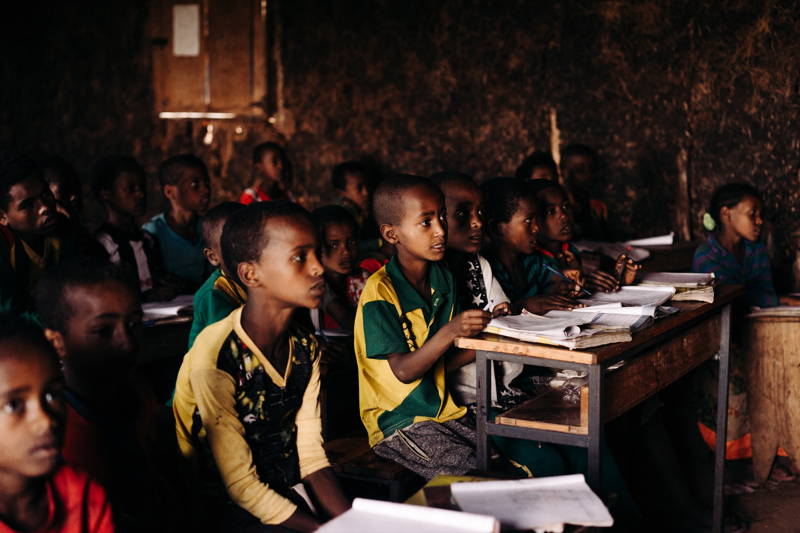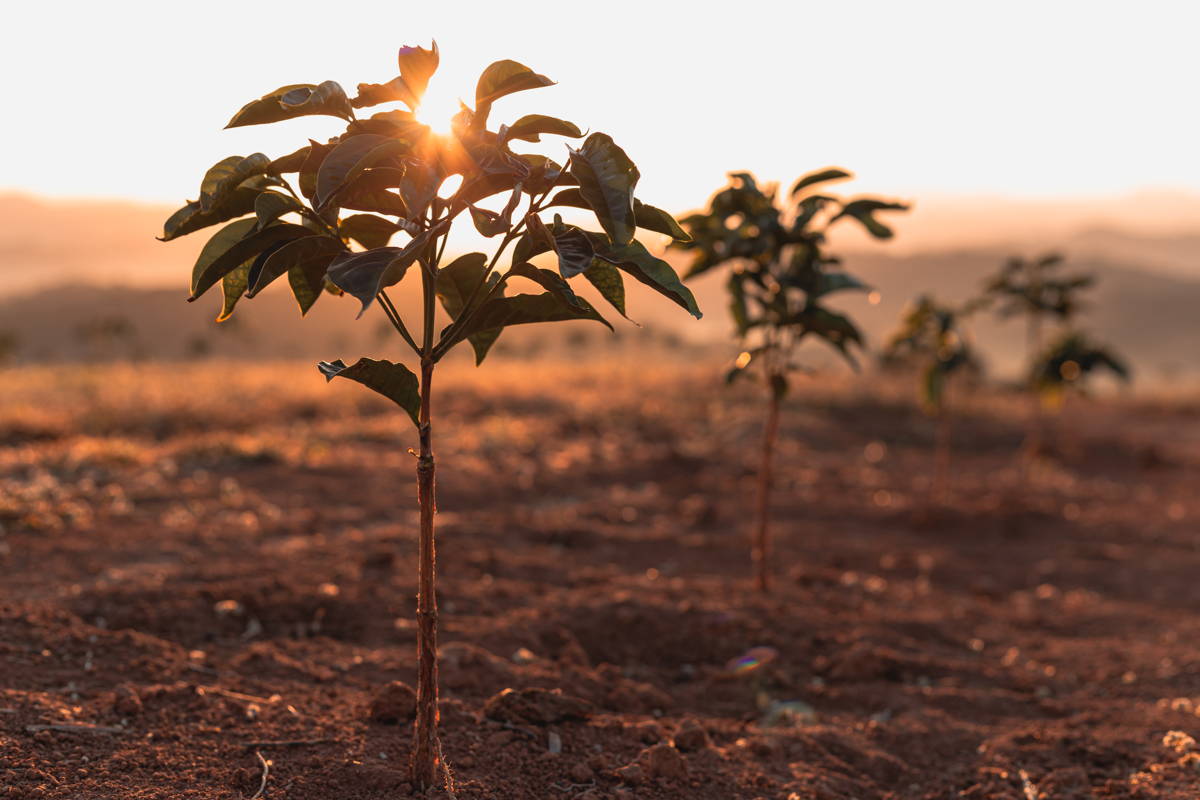
Impact Report 2021
For every kilo of coffee you buy, we donate €1 to our projects in the countries of origin.
In this Impact Report, we show you what we’ve accomplished together – in the last 12 months and in the last 11 years since our founding. Here you can find out how many farmers, harvesters, cooperatives, residents and their families we have reached thanks to your help. You can also get an insight into which projects we have initiated and implemented.
From clean drinking water to nutrition programs and tree planting, to building schools and setting up cupping labs, to training farmers and quality inspectors in Ethiopia, Colombia, Kenya, Myanmar, Rwanda, and Congo, we’ve made everything transparent for you and summarized how we’ve dealt with the Coronavirus and local conflicts in the countries of origin.
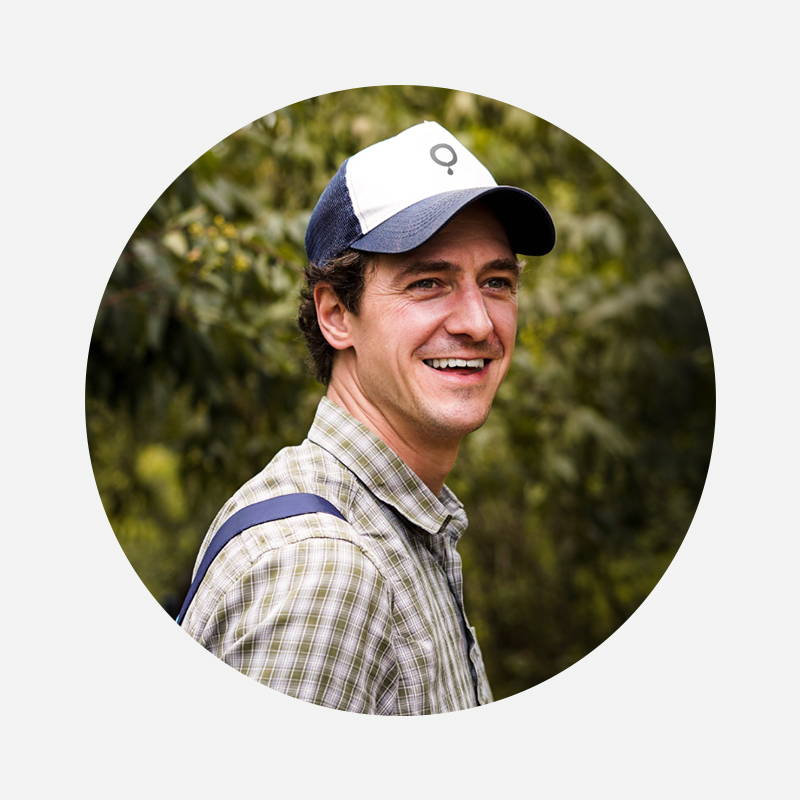
Coffee Circle in numbers
Through coffee sales and additional donations, we were able to generate €3,916,584 in donations, 100% of which will go towards project implementation.
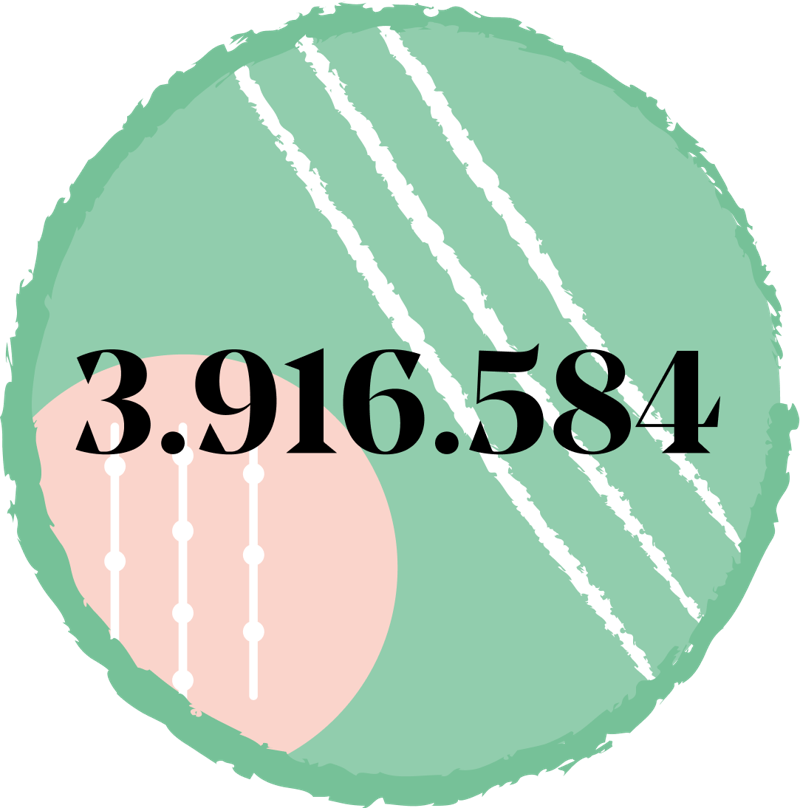
Through direct trade with cooperatives and individual farmers, we have reached a total of 620,000 people.
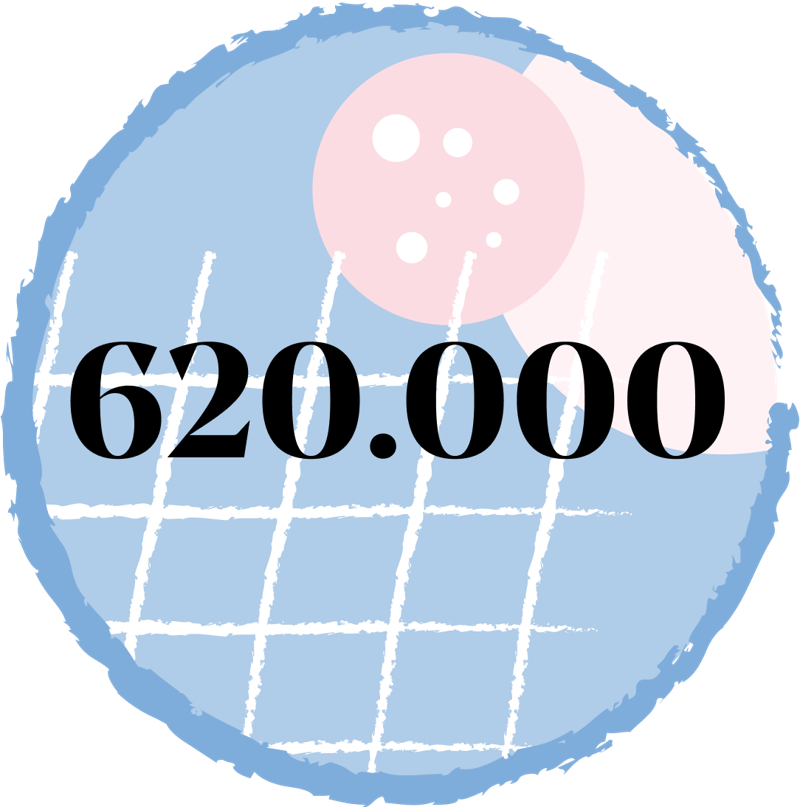
So far, we have been able to reach 127,000 people through projects in education, health and coffee cultivation.
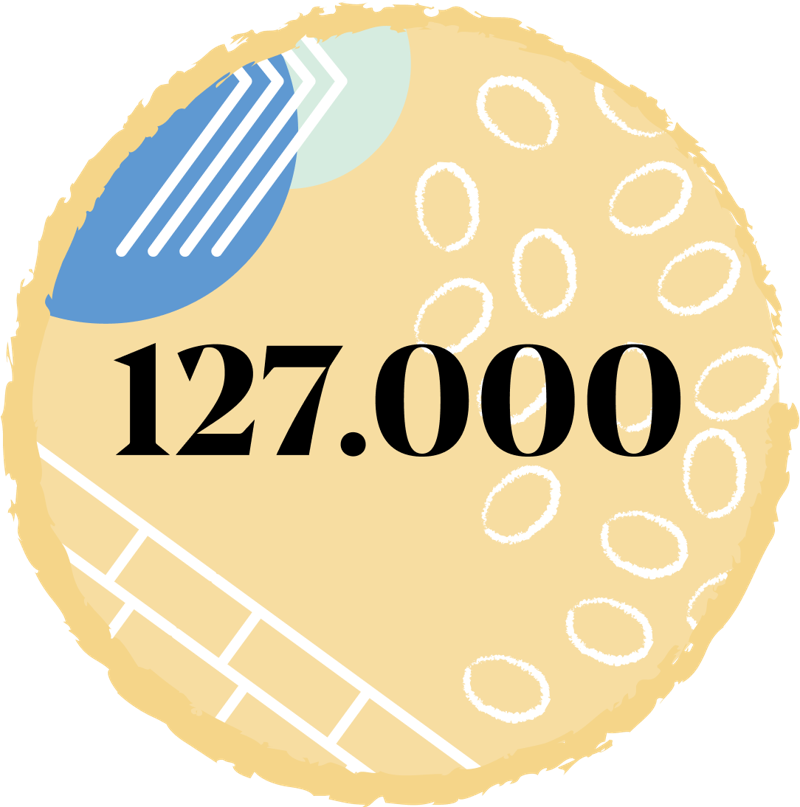
Donations through coffee sales between 2019 and 2021 in comparison:
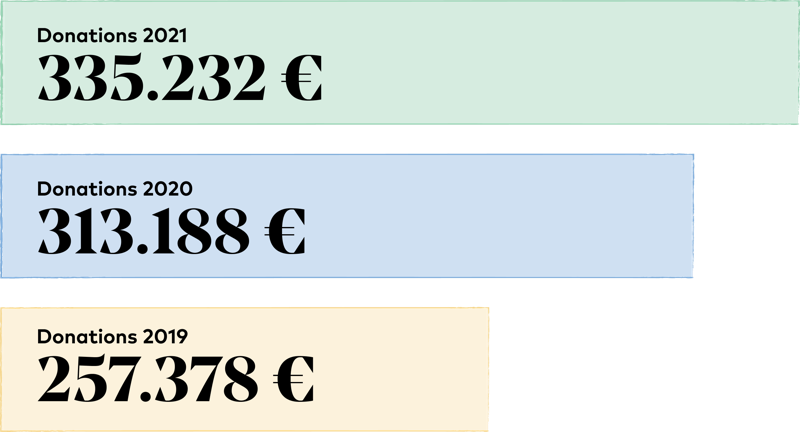
From our foundation in 2010 until now, in 2021, we have been able to generate € 1,570,000 in donations through coffee sales. In addition, we have received 146,584 € in extra donations and 1,200,000 € in donations from the German Federal Ministry for Economic Cooperation and Development (BMZ) for our multi-pronged WaSH project, and 1,000,000 € from the German Federal Ministry for Economic Cooperation and Development (GIZ).
The number of farmers reached through direct trade is the total number of farmers reached per year. The number is calculated on an annual basis, since we have been working with numerous cooperatives for many years. Their headcount changes frequently.
The number of people reached through project work is an estimate. As explained in the respective project overviews, this number is often impossible to determine precisely: a well we built serves several surrounding villages. Their population fluctuates over the years. Some of our other projects – such as the Breeders Hub in Rwanda or the marketing support for cooperatives from Myanmar – will benefit farmers and their families, the gross domestic product and thus an entire country after many years through indirect effects. In the respective reports, we have indicated how we arrive at the individual number of people reached.
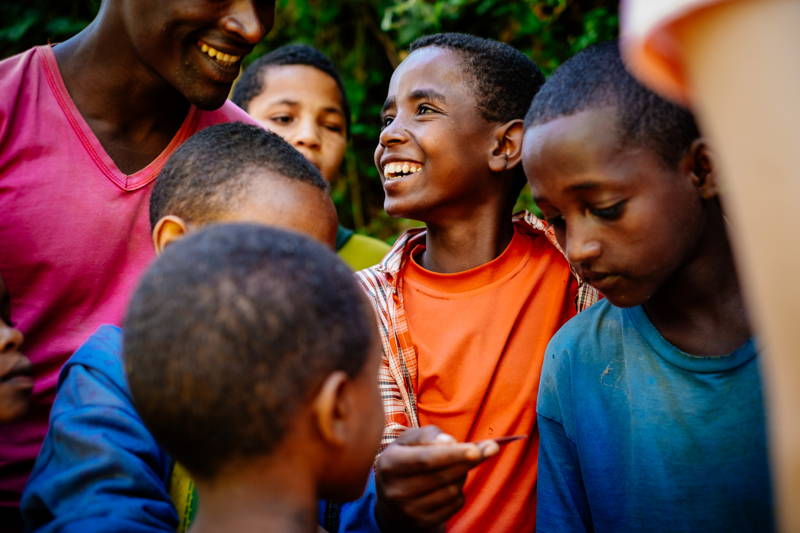
Our most recent projects
Looking back at 2020 and 2021
The years 2020 and 2021 have presented us with challenges not only due to the Coronavirus. Conflicts have broken out or escalated in several regions where we are active with our projects. Some aspects of our work in Ethiopia, for example, had to be postponed due to the virus. In Myanmar, a coup occurred in February 2021 as a result of which experts could not be hired to advise and train farmers on coffee processing for the European market. Exports were severely hampered and much of public life was curtailed by the declaration of a state of emergency in Myanmar.
The coronavirus required restructuring and rescheduling of various subprojects. As an aspect of our biodiversity project in Ethiopia, 560 kg of food (bean powder, barley, maize and others) could be distributed among families in 2020 as Corona relief thanks to your donations. Valuable awareness classes and hygiene trainings regarding the Coronavirus could also be successfully organized in the Jimma region. In order to generate awareness, posters were printed and megaphones purchased. Volunteers then visited thousands of households, informed them about the virus and provided protective equipment such as masks and hygiene items such as disinfectant.
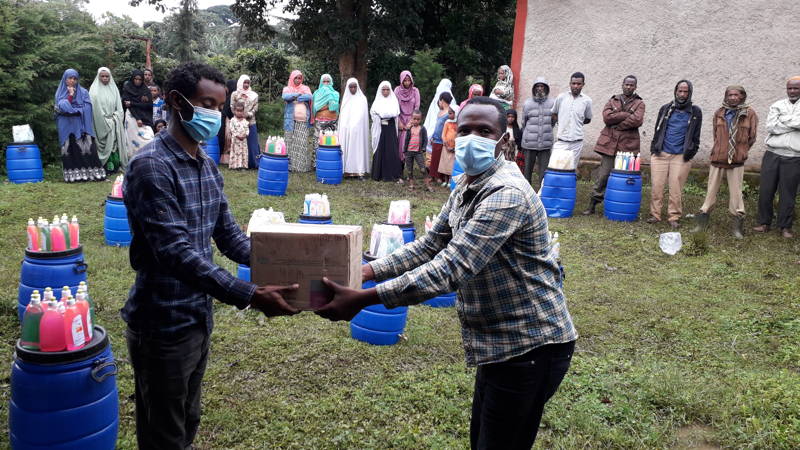
As this was not enough, government representatives and staff employed by Welthungerhilfe conducted several training sessions. For each administrative district in the region, five volunteers, a health advisor and another contact person were assigned to carry out these trainings, then to monitor the implementation of the hygiene measures and to assist residents with any questions they had. In this way, it was possible to reach as many people as possible in the regions. We have summarized how the virus has affected Ethiopia in particular in this report.
Prior to the virus outbreak, we had agreed to fund the hosting of the second African Breeders Hub in close collaboration with World Coffee Research.
The Second Annual African Breeders Hub was to be held as a workshop on March 25-26, 2020, in Kigali, Rwanda. The event could be implemented, but not physically as intended. It was held virtually on May 12, 2020. Single, individual meetings within the Breeder Hub were held in April and May of that year. The financial resources that could not be invested through the virtual hosting of the Breeders Hub – just under US$3,500 – have gone to the Rubona Research Centre in Rwanda, where the genetic material is stored as well as live coffee plants that require intensive care and undergo regular scientific testing.
Some of our projects, such as WaSH in Ethiopia, will continue for several years so that as many local people as possible can benefit permanently from the measures.
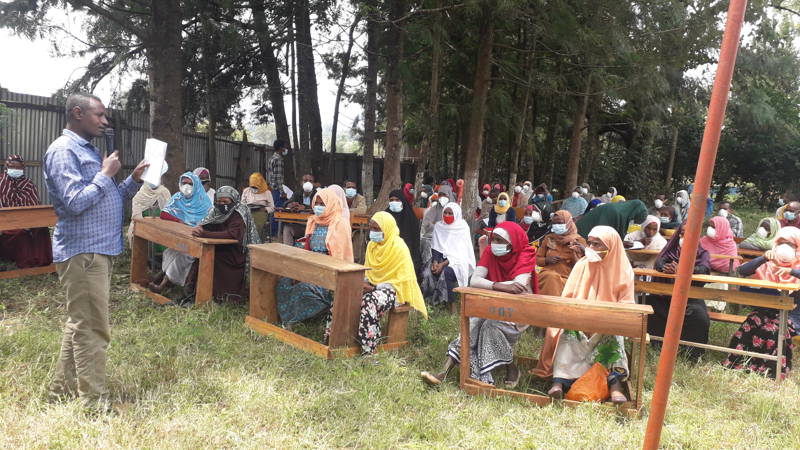
Our WaSH project
Trading principles
Since May 2016, Coffee Circle has been a proud member of the global network „Certified B Corporation“ – an association of certified social enterprises worldwide that use entrepreneurship to make a positive impact on our society and environment. The „B“ in B Corp stands for „Benefit“. The focus of the companies is not solely on financial success, but equally on social and environmental impact.
When we founded Coffee Circle, we decided to have as much control as possible over how coffee is purchased and how farmers and exporters are compensated. This was one of the reasons for us to do Direct Trade instead of Fair Trade. Direct Trade describes direct trade with partners, coffee farmers and exporters. Therefore, we can control exactly how much money ends up with the farmers with whom we have negotiated the payment ourselves. Accordingly, we know from which fincas our coffees originate. We regularly visit our long-term partners and exchange information with them.
The Fairtrade minimum price is $1.60/lb (including the seal’s $0.20/lb social premium). In 2021, we paid an average of €6.27 per kilo ($3.19/lb) of green coffee. The amount we paid to farmers in 2021 was 99.375% above the Fairtrade minimum price of $1.60/lb and 145.38% above the current ICO (International Coffee Organization) world market price of $1.30/lb.
This is a significant improvement over 2017: in that year, our weighted average purchase price was 58% above the Fairtrade minimum price and 100% above the ICO world market price.
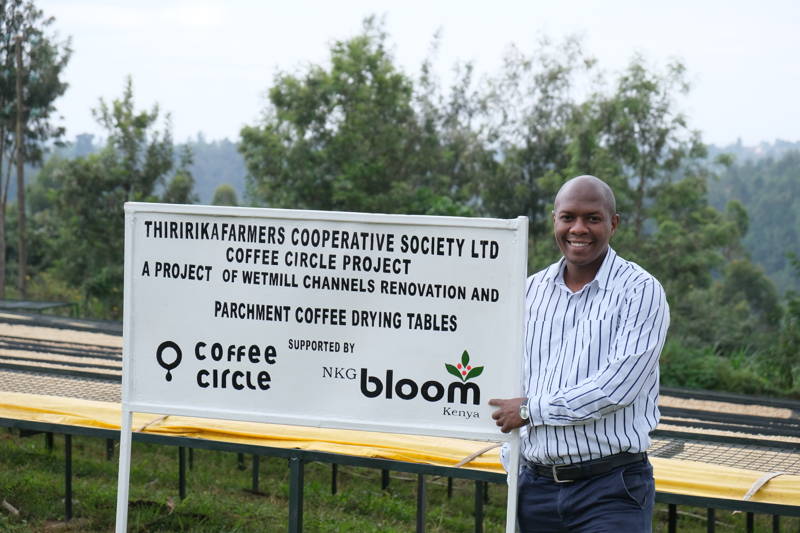
Social impact through direct coffee purchase
Through direct trade, we have thus been able to reach 620,000 people. The majority of the cooperative’s revenues are paid directly to the coffee farmers, while a small portion is used to cover running costs such as machine maintenance. Since not only the coffee farmers benefit from the increase in income but also their families, the effect is extended to the size of the family.
Impact through local projects
Our projects meet certain criteria:
- there is a concrete need
- the local people are involved in the implementation
- the maintenance of the projects is not dependent on us
- the impact is measurable, i.e. we can state how many people in the regions benefit from our project work.
So far, we have been able to reach 127,000 people through projects in the areas of education, health and coffee cultivation. Since Coffee Circle was founded, we have implemented a total of 14 projects, some of which are divided into sub-projects. The WaSH project in Ethiopia remains the largest we have implemented and, as listed above, consists of facilitating clean drinking water supplies; building sanitation facilities; hygiene training; and a biodiversity component that includes tree planting and cooking classes.
The area of (education) is a particularly important one in our project work. We have not only built a school in Ethiopia, but also financed quality training for farmers and cupping labs that enable producers to measure the quality of their own coffee for the first time and improve it if necessary. This will enable them to charge higher prices for their products and increase their income and wages accordingly.
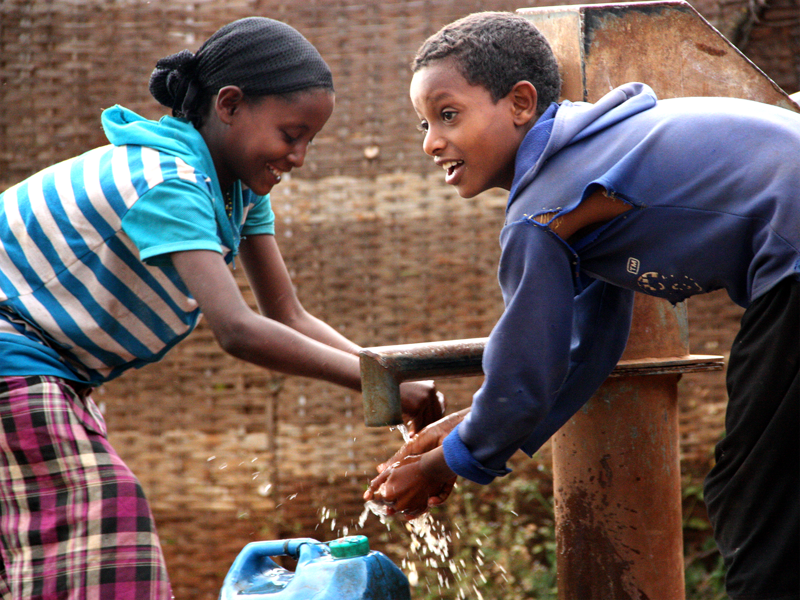
Our educational projects
Sustainability
Several of our projects – such as the biodiversity part of our WaSH project – directly address the protection of the environment. Sustainability is also an important issue that is particularly close to our hearts. As part of our biodiversity project in Ethiopia, we were able to plant trees on site, prepare beehives, open tree nurseries, and raise papaya trees thanks to the BMZ funding. In total, we have planted just over half a million trees in the Jimma region to date (as of December 2021).
We have also opened two nurseries for sustainable coffee cultivation in the Mana (Doyo Toli) and Gomma (Homa Funtule) districts. Storage sheds have been built for nurseries where, in addition to coffee plants, numerous tree species are grown for use in fields for agricultural purposes, reforestation or shade. Several 150,000 seedlings have been successfully raised and distributed to regional farmers.
In 2020, we commissioned Planetly to determine our carbon footprint and recommend measures to offset it. Following Planetly’s recommendation, we offset our CO2 emissions of 190 tons by donating €2,280 (€12 per ton of CO2) to the REDD+ Forest Conservation Project Congo Basin in the Democratic Republic of Congo. The Congo Basin rainforest is the second largest intact rainforest in the world and it contains one of the most important wetlands. This REDD+ project protects 300,000 hectares of bonobo and forest elephant habitat in the Congo Basin. With the help of the CO2 certificates, the living conditions of the 180,000 inhabitants are also improved through access to basic social services.
After long research and intensive investigations into sustainability and transportability, we decided to use new material for our coffee packaging from October 2021 onward, which meets our requirements even better by keeping the coffee fresh for as long as possible and having a lower carbon footprint. Since October 2021, we have been using packaging material made from BOPP (biaxially-oriented polypropylene) and EVOH (ethylene vinyl alcohol). The former is a biaxially-oriented polyester film that has a low carbon footprint compared to other plastics. Because it has a low melting point, it requires less energy to recycle than comparable materials. And when your package is empty? Peel off the label and throw it in the paper trash. The packaging goes in the yellow bag.

Our sustainability projects
Outlook
We look forward to continuing our work with you over the next few years. Some of our projects have been completed, but others will continue, as described at the beginning. This also applies to our WaSH project. In September 2021, we signed a contract with Welthungerhilfe in which we committed to continue the WaSH project with its sub-projects until December 31, 2024 and to support it financially with a total of €700,000. The planning and evaluation phase started on September 1, 2021 and will last six months. Of course, we will keep you informed about every step.
A report by Stephan Eicke
